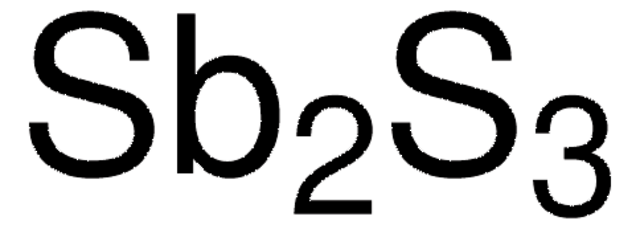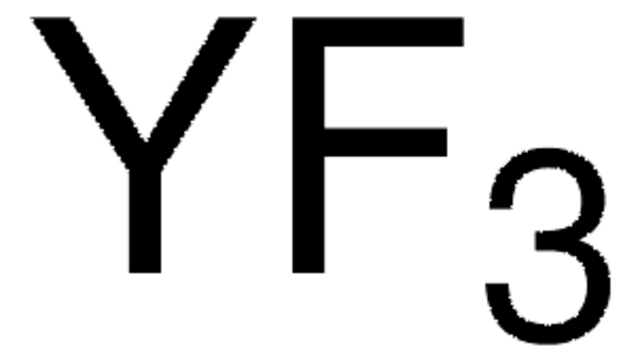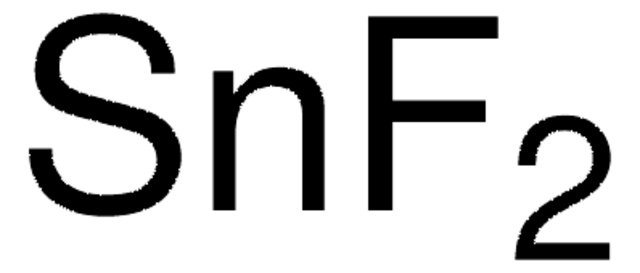333271
Zinc sulfide
pieces, 3-12 mm, 99.9% trace metals basis
Synonyme(s) :
Zinc sulphide
Se connecterpour consulter vos tarifs contractuels et ceux de votre entreprise/organisme
About This Item
Formule linéaire :
ZnS
Numéro CAS:
Poids moléculaire :
97.46
Numéro CE :
Numéro MDL:
Code UNSPSC :
12352300
ID de substance PubChem :
Nomenclature NACRES :
NA.22
Produits recommandés
Niveau de qualité
Essai
99.9% trace metals basis
Forme
pieces
Pertinence de la réaction
core: zinc
reagent type: catalyst
Taille des particules
3-12 mm
Densité
4.1 g/mL at 25 °C (lit.)
Chaîne SMILES
S=[Zn]
InChI
1S/S.Zn
Clé InChI
WGPCGCOKHWGKJJ-UHFFFAOYSA-N
Vous recherchez des produits similaires ? Visite Guide de comparaison des produits
Catégories apparentées
Application
Suitable for vacuum deposition.
Uses:
- Preparation of flexible transparent conductive coatings essential for fabrication of a variety of printed electronic devices such as flexible displays and solar cells
- Prepare a composite CdS-ZnS/Zirconium-titanium phosphate (ZTP) photocatalyst for hydrogen production under visible light
- Prepare light-controlled bioelectrochemical sensors based on CdSe/ZnS quantum dots
- Catalyst for photocatalytic degradation of organic pollutants
- Preparation of color tunable light-emitting diodes (LEDs)
- Prepare (CdS-ZnS)-TiO2 combined photocatalysts for electricity production via photoelectrocatalysis
- Catalyst for synthesis of spirooxindole derivatives in aqueous medium via Knoevenagel condensation followed by Michael addition
- Prepare CdSe/ZnS q uantum dots for chemiluminescent and chemiluminescence resonance energy transfer (CRET) detection of DNA, metal ions, and aptamer-substrate complexes
- Preparation of ZnS nanocrystals for ultrasensitive protein detection in terms of multiphonon resonance Raman scattering
Code de la classe de stockage
13 - Non Combustible Solids
Classe de danger pour l'eau (WGK)
nwg
Point d'éclair (°F)
Not applicable
Point d'éclair (°C)
Not applicable
Équipement de protection individuelle
Eyeshields, Gloves, type N95 (US)
Faites votre choix parmi les versions les plus récentes :
Déjà en possession de ce produit ?
Retrouvez la documentation relative aux produits que vous avez récemment achetés dans la Bibliothèque de documents.
Chi Chen et al.
ACS applied materials & interfaces, 5(3), 1149-1155 (2013-01-18)
Facile aqueous synthesis of near-infrared Ag(2)Te quantum dots (QDs) and Ag(2)Te/ZnS core/shell QDs emitting in the second biological window is reported. The QD synthesis is based on a straightforward cation exchange process between CdTe QDs and Ag(+) ions conducted in
Tao Liu et al.
Optics express, 21(4), 4671-4676 (2013-03-14)
We report the fabrication of a planar waveguide in polycrystalline zinc sulfide by 6.0 MeV C ions implantation with a fluence of 5 × 10¹⁴ ion/cm² at room temperature. The near-field light intensity profiles in the visible and near-infrared bands
Bioimaging: illuminating the deep.
Kyryl Zagorovsky et al.
Nature materials, 12(4), 285-287 (2013-03-21)
Surinder K Mehta et al.
Spectrochimica acta. Part A, Molecular and biomolecular spectroscopy, 105, 516-521 (2013-01-29)
Using polyethylene glycol (PEG) coated ZnS nanoparticles (NPs), a novel and highly sensitive luminescent sensor for cyanide ion detection in aqueous solution has been presented. ZnS NPs have been used to develop efficient luminescence sensor which exhibits high reproducibility and
Yi-Chun Yeh et al.
Chemical communications (Cambridge, England), 49(9), 910-912 (2012-12-19)
Functionalization of bacterial cell surfaces has the potential to introduce new activities by chemical modification. Here we show that a bacteriophage-receptor complex can be used to functionalize the surface of two Gram-negative proteobacteria, Escherichia coli and Ralstonia eutropha with CdSe/ZnS
Notre équipe de scientifiques dispose d'une expérience dans tous les secteurs de la recherche, notamment en sciences de la vie, science des matériaux, synthèse chimique, chromatographie, analyse et dans de nombreux autres domaines..
Contacter notre Service technique







